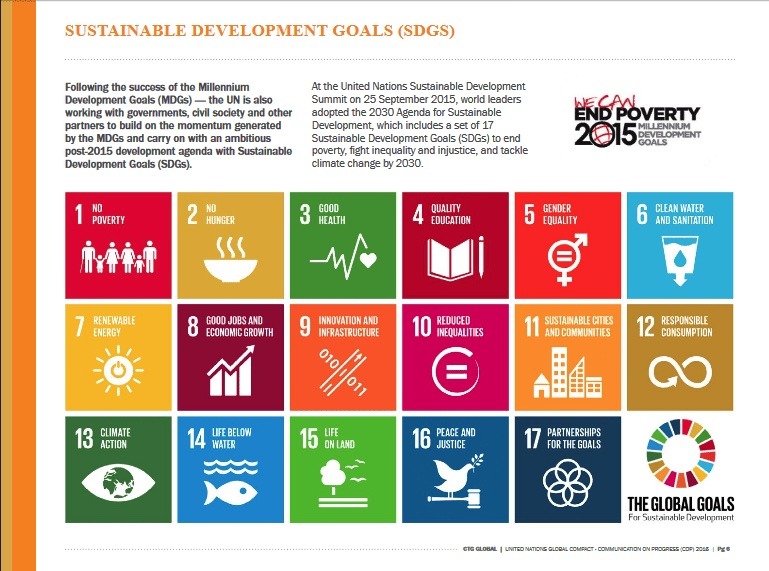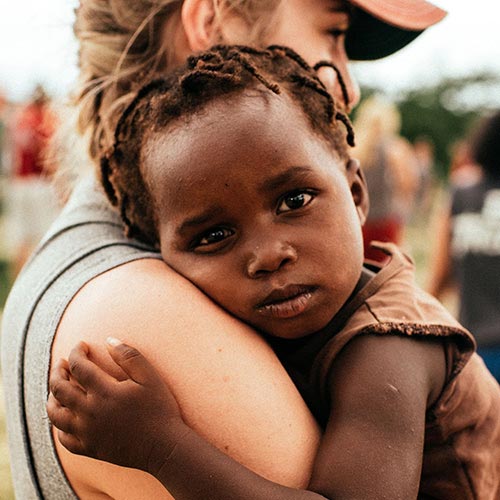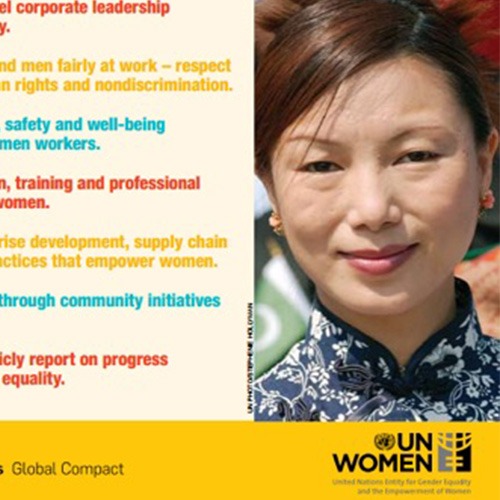We Can End Poverty And Bring Peace – Globally

Three strategies for effective change around the world
Last month I was delighted to play a part at the 71st session of the United Nations General Assembly 2016 in New York. At the UN Private Sector Forum businesses from across the world, with the UN and other partners, committed to each make a contribution towards ending poverty and creating a peaceful world by 2030.
I know, the goals seem immense – below are the 17 Sustainable Development Goals (SDGs) that we have signed up to. I chaired one of the table discussions; our question for discussion was ‘How can governments, the United Nations and the private sector work together to build peace and stability whilst ensuring that no-one is left behind?’

Looking round the room I could see the commitment – and honestly thought, together we can make this happen.
We had everyone from HE Ban Ki-moon and Rt Hon Justin Trudeau to Ewan McGregor and Richard Curtis; executives from UPS to Ikea; and dozens of smaller organisations like ourselves who have expertise in delivering humanitarian success. Pulling it all together was inspiring.
What was different and so hopeful about this event? Since the UN was founded in 1945, it has tried to achieve peace and tackle global problems on its own. There are 193 countries involved with the UN – it is a fantastic vehicle for bringing people together, but inevitably not for rapid decision-making and action.
This time, the private sector is not just being asked to fund initiatives in a passive role, but actually to own and start delivering parts of a bigger picture.
At CTG , we have now embedded the SDGs into our own strategy and business plan – this link is to our corporate sustainability commitment to the UN. With every project we now think about all the goals and how we can contribute to them through our work – whether it is reducing hunger, empowering women or transparent job creation. The power of all these businesses making a difference on all these fronts will achieve results. I saw that days after the event, Unilever had already put its global goals commitments on their website; 24 hours after the General Assembly, Vodafone had sent a newsletter to all their customers stating the global goals. The UN would find it hard to make these sorts of decisions so quickly; that is the benefit of us all working together. We each bring different strengths.
For all my commitment and enthusiasm, we all know the challenges ahead are enormous. On the plane back, I thought about what is most likely to stop us achieving success. I share my thoughts on this and welcome other views – I believe overcoming these issues is as important as creating new initiatives.
1. Stop waste
Too much of the food and funds never reach those who desperately need them.
We run food programs in Sierra Leone, Afghanistan and Sudan where you see hijackings and trucks of food stolen or kidnapped for payment. In our case we have to make sure our supply chains are extremely strong so we deliver the food where it is needed.
We all need strong leadership to stop malpractice. As an SME, we have been threatened with arrests because we have refused to pay officials. On the one hand, you want to help those in need and it is tempting to give in, but if we don’t take a stand we will never see change.
It’s important that policy makers and academics understand the challenges at grass roots – the theory of principles are laudable, but can be extremely challenging to follow through in reality.
2. Talk and no action
Sessions like those in New York are brilliant to share thoughts and expertise. But we have to ensure these don’t become academic or political exercises; action is needed. In November last year, the BBC reported that ‘A slow international response and a failure of leadership were to blame for the “needless suffering and death” caused by the recent Ebola epidemic’.
USAID and the UN did use the private sector in Liberia which made a huge difference – this encouraged them to start working with the private sector more and I am sure this will help in achieving quicker action.
3. Local action
For me, one of the most important aspects of the SDGs is the UN statement “The only way the SDGs can be achieved is through actions in local communities and countries around the world”.
Building peace is about action at a local level – academic discussions will achieve little in the end.
This is all about:
· Preparedness
· Education
· Local government investment (in the country)
· Zero corruption in foreign aid
· Youth ambassadors
Organisations like ours are networked and mobile in countries from Libya, Syria and Mali to Palestine, Somalia and Iraq. It is great that we are now working so closely at a planning level with the UN because we can share expertise to ensure effectiveness at field level.
We are setting up our own systems to evaluate our own progress towards 2030 – we’d be happy to discuss and share this learning and would appreciate hearing from others.
I have never been so convinced that we can all make a difference. It is shocking that in the 21st century we still have so much poverty, hunger and war. It has to stop.





